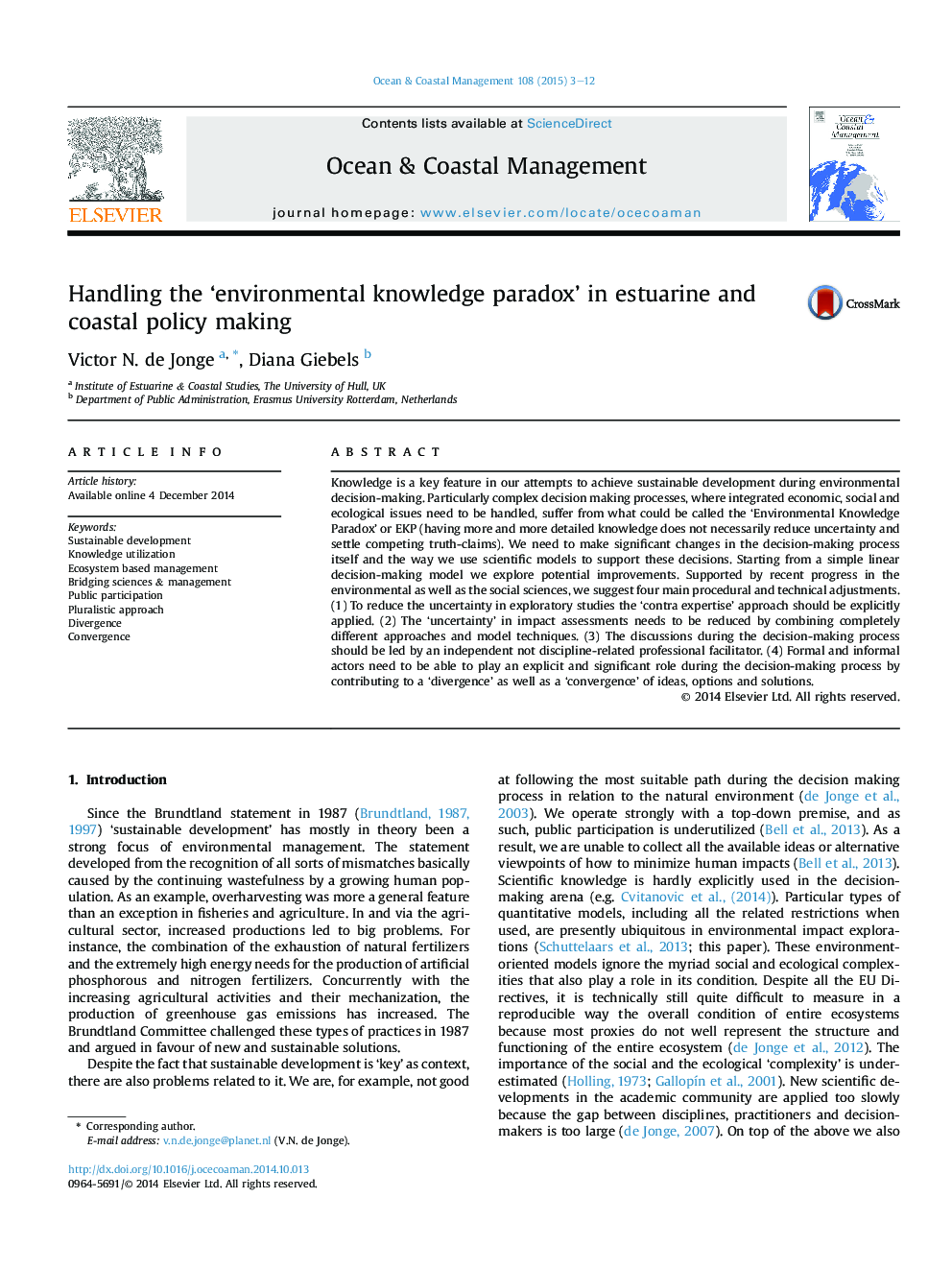| Article ID | Journal | Published Year | Pages | File Type |
|---|---|---|---|---|
| 1723503 | Ocean & Coastal Management | 2015 | 10 Pages |
•‘Environmental Knowledge Paradox’: more details of the same knowledge is not helpful.•Public participation needs to be strengthened in the decision-making process.•Uncertainty can be reduced to explore two or more different independent alternatives.•Exploration strategies need to be changed from singular to multiple approaches.•Discussions related to decision-making need to be led by a professional facilitator.
Knowledge is a key feature in our attempts to achieve sustainable development during environmental decision-making. Particularly complex decision making processes, where integrated economic, social and ecological issues need to be handled, suffer from what could be called the ‘Environmental Knowledge Paradox’ or EKP (having more and more detailed knowledge does not necessarily reduce uncertainty and settle competing truth-claims). We need to make significant changes in the decision-making process itself and the way we use scientific models to support these decisions. Starting from a simple linear decision-making model we explore potential improvements. Supported by recent progress in the environmental as well as the social sciences, we suggest four main procedural and technical adjustments. (1) To reduce the uncertainty in exploratory studies the ‘contra expertise’ approach should be explicitly applied. (2) The ‘uncertainty’ in impact assessments needs to be reduced by combining completely different approaches and model techniques. (3) The discussions during the decision-making process should be led by an independent not discipline-related professional facilitator. (4) Formal and informal actors need to be able to play an explicit and significant role during the decision-making process by contributing to a ‘divergence’ as well as a ‘convergence’ of ideas, options and solutions.
Graphical abstractFigure optionsDownload full-size imageDownload as PowerPoint slide
